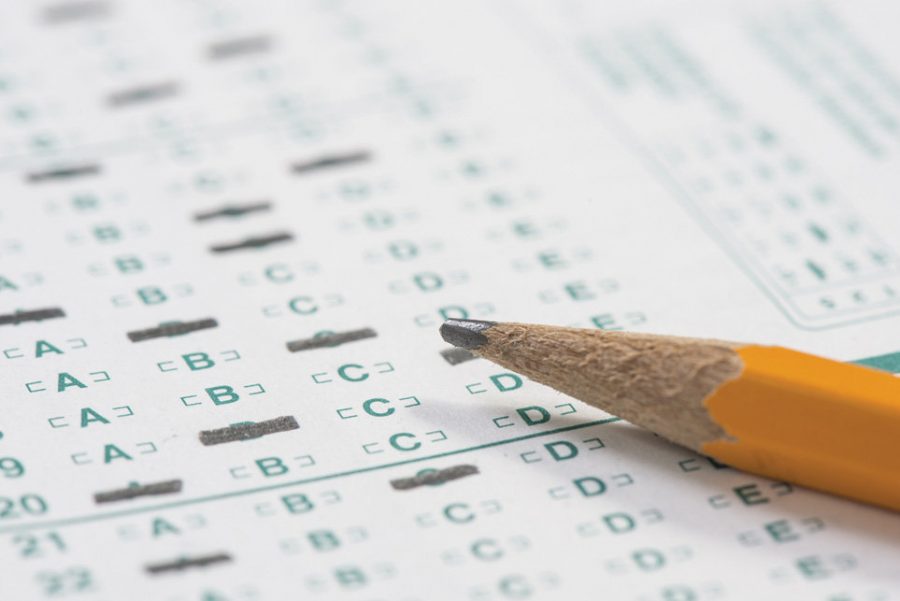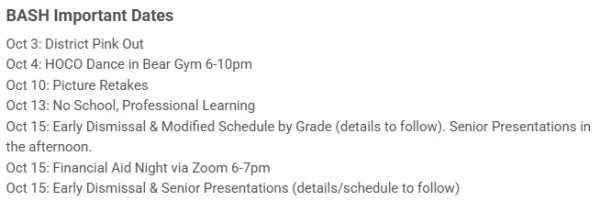Keystones No Longer a Graduation Requirement
Students took the Winter Keystones last month, but they no longer have to worry about passing them to graduate.
After a decade of debate, the state has changed the law that requires students to score proficient or advanced on the Keystone exams to earn a diploma. Governor Tom Wolf signed Senate Bill 1095 into law on Oct. 24, providing alternative ways for students to meet the graduation requirement.
“Senate Bill 1095 will expand the options for students to demonstrate postsecondary readiness using four additional pathways that more fully illustrate college, career, and community readiness,” a statement on the Pennsylvania Department of Education website said. Alternatives to scoring proficient on the exam for graduation now include:
- Earning a satisfactory composite score on the Algebra I, Literature, and Biology Keystone Exams. [Before, students had to score at least proficient on each individual test]. The passing composite score will be available in August 2019 .
- Earning a passing grade on the courses associated with each Keystone Exam (English, Biology or Algebra I class) and satisfactorily completing one of the following: an alternative assessment (SAT, PSAT, ACT, ASVAB, Gold Level ACT WorkKeys), advanced coursework (AP, IB, concurrent enrollment courses), pre-apprenticeship, or acceptance in a 4-year nonprofit institution of higher education for college-level coursework.
- Earning a passing grade on the courses associated with each Keystone Exam, and pass the National Occupational Competency Testing Institute (NOCTI) or the National Institute of Metalworking Skills (NIMS) assessment in an approved Career and Technical Education concentration.
- Earning a passing grade on the courses associated with each Keystone Exam, and demonstrate readiness for postsecondary engagement through three pieces of evidence from the student’s career portfolio aligned to student goals and career plan. Examples of evidence will include ACT WorkKeys, SAT Subject tests, AP, IB and concurrent coursework, higher education acceptance, community learning project, completion of an internship, externship or co-op or full-time employment.
- Individualized Education Plan (IEP) students graduate upon successful completion of their IEP plan and goals.
The state of Pennsylvania issues the Keystone standardized tests. However, they are part of a nationwide program in which schools receive government funding for administering the test, which must align with national Common Core education standards.
A bill passed in 2010 required high school students starting with the class of 2017 to score proficient on the Algebra I, Biology, and English Keystone Exams in order to graduate. However, due to political backlash, the implementation date kept getting pushed back from 2017 to 2019 to 2020.
The new statewide graduation requirement officially takes effect for the graduating class of 2022, but there is no statewide graduation requirement for the classes of 2019, 2020, and 2021. “Students, parents, and guardians should reference local policies governing graduation, which are not preempted by the moratorium on the statewide requirement,” the state said.
In reaction to the changed requirements, Vice Principal Mr. Andrew Mauory said BASH did not make students who already made two attempts at the Keystone take the test a third time this winter.
Additionally, a committee is forming to re-examine Flex for students who need extra help to pass the Keystones. Currently, both students who require remediation for re-testing and “pre-teaching” before taking the exam for the first time are the highest priority for Flex placement.
‘’’Pre-teaching’ will still remain the first priority,” Mr. Maoury said, “but we will reconsider the remediation aspect, among other items.”
Mr. Maoury said administration and staff are also discussing new ways to motivate students to perform well on the Keystones since the graduation requirement was taken away.
“Soon, student input will be gathered and we will present these ideas to school community as they develop.”

Shannon is a senior who loves to write. This is her third year in CUB and she was a member of the East Observer. She also manages girls' volleyball, plays...























Amber • Apr 19, 2022 at 9:41 pm
As someone who’s graduating in 2025 I was told we have to pass the Keystones? Can someone please explain this to me I’d really love to know how much I have to stress about the tests. I do well in school but when it comes to tests I can never pass for some reason. Probably due to my adhd and anxiety.
Cheyenne Williams • Apr 21, 2022 at 8:16 am
We are not completely sure, but the best way to find out would be to ask your counselor or teacher:)
Jennifer Alberts • Dec 15, 2020 at 1:44 pm
As a parent of 5 children I can say all 5 are different. All are A B students but 3 do not do well on these test. 2 of my girls never got lower then a 4.0 in school but failed these tests. My daughter cried for weeks every year after taking these test because Rochester school said she can not graduate if she can’t pass it. I hope one day they due away with these rediculious test
Henry • Sep 10, 2020 at 11:51 am
So does this mean for students graduating in 2021 in Pa . They don’t have to pass the keystones to graduate ?